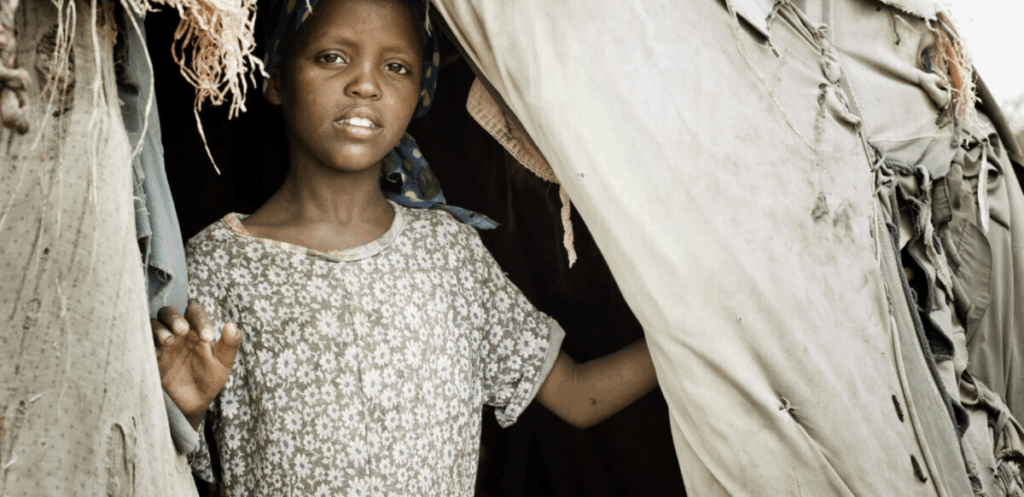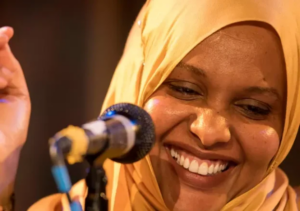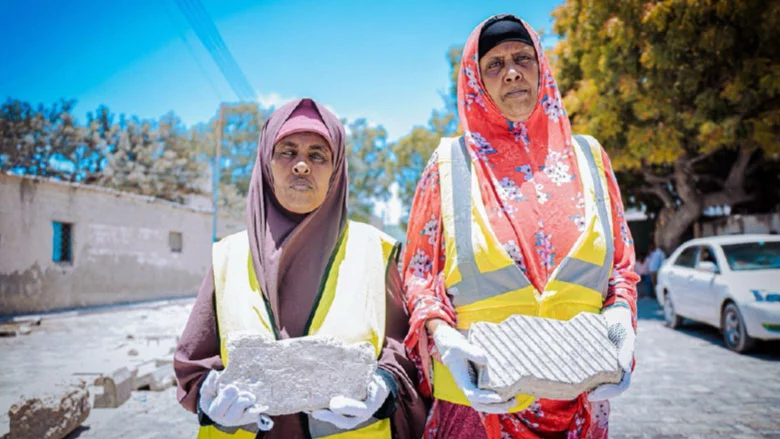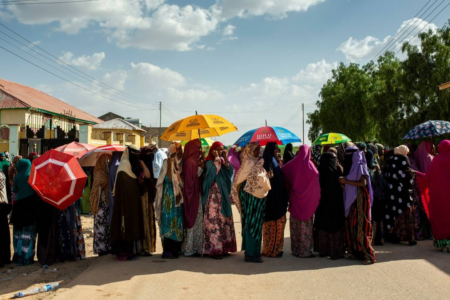In the heart of Mogadishu, Somalia, two women are defying societal expectations and reshaping the narrative of the country’s construction industry.
Farhiya Abdikadir Mohamed and Halima Abukar have joined the ranks of road builders under Nagaad Project, the World Bank-supported Somalia Urban Resilience Project – Phase II.
Becoming powerful symbols of change and resilience.
Empowering Women Through Urban Infrastructure
Nagaad Project is transforming six Somali cities:
Mogadishu, Garowe, Baidoa, Kismayo, Dhusamareeb, and Beledweyne.
By improving urban infrastructure and creating job opportunities, particularly for women and internally displaced persons (IDPs).
To date, the initiative has reached 494,910 people, nearly 49% of its one-million-person target, with women making up 51% of the beneficiaries and IDPs comprising 14%.
Over 1.2 Million Beneficiaries from Nagaad Project
The project has already completed 34 kilometers of urban roads equipped with solar street lighting, sidewalks, drainage systems, and green zones.
Additionally, a 145-meter bridge and 6 kilometers of rehabilitated drainage systems have been constructed.
Another 53 km of roads and 2 km of drainage are currently under construction, which will expand the project’s reach to over 1.2 million people—surpassing its original goals.
Women Thriving in Male-Dominated Sectors
Farhiya and Halima’s stories reflect the transformational power of inclusive infrastructure projects.
Both women initially faced skepticism, not only from society but also from themselves.
Halima, a mother of seven, previously worked low-paying jobs and saw construction as a last resort. Farhiya, raised in a traditional household, always admired construction work but never imagined herself being part of it.
With training in safety, equipment operation, and asphalt application provided by the project, the two women soon earned the respect of their male colleagues.
“They don’t see us as women doing a man’s job anymore—they see us as professionals,” said Farhiya.
Life-Changing Impact for Families and Communities
Beyond financial stability—Halima now affords school fees and food for her children—the women have gained independence and social influence.
“This job gave me life and hope,” Halima says.
Meanwhile, Farhiya dreams of becoming a site supervisor and leading her own projects.
Community perceptions are also changing.
“Women used to be discouraged from construction work,” Halima said.
“Now, girls in my neighborhood ask how they can join.”

Broader Impact of Nagaad Project
The Nagaad Project also plays a critical role in climate resilience and crisis response.
Its municipal drought intervention has supported over 1,056,000 people.
With 63% being women and 82% IDPs, providing essential services in times of crisis.
Mohamed Sheikh Ahmed, a community engagement specialist, highlights how the project goes beyond employment.
“This is about shifting mindsets and building a future where gender no longer defines opportunity,” he said.









